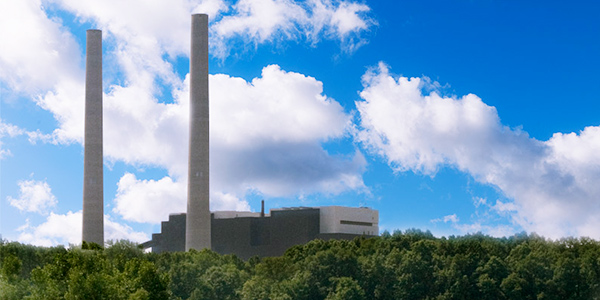By Amanda Durish Cook
The Michigan Public Service Commission last week told DTE Electric to extensively revise its 15-year integrated resource plan, finding the utility didn’t adequately factor in the benefits of renewable energy.
The decision, which was neither a rejection nor approval, means DTE must go “back to the drawing board,” the state commission said Thursday. It gave the utility until March 21 to submit a revised IRP (U-20471).
Administrative Law Judge Sally Wallace in late December ruled against DTE’s IRP, saying the utility used outdated information in its modeling that produced results that minimized the advantages of renewable energy and energy efficiency. She also said the plan failed to include competitive bidding for renewable generation to fill capacity needs and leaned too much on natural gas-fired generation. In addition to the $1 billion, 1,150-MW gas-fired Blue Water Energy Center under construction, DTE proposed multiple gas-fired plants rated about 400 MW, 693 MW of wind generation, 11 MW of solar with on-site storage and 859 MW in demand response programs by 2024. (See DTE IRP Draws Fire from Renewable Proponents.)
The commission did not have to follow the judge’s recommendation in its final decision. However, Wallace had said DTE should adjust the plan even if the Michigan PSC decided to approve it.

But the trio of regulators largely agreed with the judge’s decision, saying the IRP should contain plans for a request for proposals for new renewable resources. The PSC also initiated two new proceedings in the order, including an April 1 deadline for DTE to update its renewable energy plan and a Nov. 13 deadline to file an application for review of its compliance with the federal Public Utility Regulatory Policies Act.
The PSC also required that DTE reach 1.75% energy savings in 2020 and 2% in 2021, the same targets the commission set for Consumers Energy. Michigan’s statutory minimum is 1% per year; DTE had proposed it satisfy a 1.65% savings in 2020 and 1.75% in 2021.
“The commission acknowledges DTE’s focus in the near term on ways to increase programs to cut energy waste, but we’re recommending that the utility do more to tap into this cost-effective resource,” PSC Chairman Sally Talberg said.
The commission said the plan’s failure to use current data and study renewable alternatives painted an incomplete picture.
“These issues inhibited the commission from assessing the full range of alternatives such as utility- and third-party-owned wind and solar projects,” the PSC said in a statement. In the order, it said there were “significant deficiencies” in DTE’s record, “including a starting point that included a range of nonapproved and nonoptimized resources and the failure to issue a request for proposals for supply-side resource additions.” The commission said it would be best for DTE to remove all the supply-side resource additions it proposed to start fresh.
It also said DTE’s proposal to hold off on full retirement of the coal-fired Belle River power plant near the Canadian border until 2030 was “inadequately justified because an analysis of avoiding new environmental upgrade costs was not considered.”
The PSC agreed with the criticism that DTE’s modeling software Strategist is outdated and no longer supported by its developer ABB Group. It ordered the utility to schedule a technical conference within three months to discuss alternative modeling software with “interested stakeholders.”
The commission didn’t mince words about the stakes for the utility. “Should DTE Electric fail to file a revised IRP that substantially adopts the recommended changes, the commission will be left with little alternative but to deny the IRP,” it said.
It said it accepted thousands of public comments since the plan was filed last March, the “vast majority” urging it to reject the IRP and direct DTE to increase its renewable fleet. Michigan’s reliance on coal has fallen dramatically, from more than 65% of the state’s generation fleet in 2007 to more than 40% in 2017.
“We appreciate the unprecedented amount of public participation generated by the interest in this case, a clear indication that Michiganders are becoming more engaged in helping to shape Michigan’s energy future,” Talberg said.

In a statement, DTE said it was evaluating the recommendations to prepare for a response filing. The company said the IRP “reflects our long-term goals and plans to be a leader in providing cleaner energy to our customers.”
“Since 2009, DTE has been the largest investor in renewables in Michigan, driving $3 billion in solar and wind energy infrastructure and investments. Over the next decade, we will triple our renewable energy assets,” the company added.
DTE had defended its plan in January, calling it the “most reasonable and prudent means” of meeting its energy and capacity needs. The utility repeated claims that it will not have a capacity need to be filled by small qualifying facilities under PURPA for at least the next five years and no planning-level need for additional capacity for at least the next decade. After the Belle River units retire in 2029 and 2030, DTE said it would begin to experience a 585-MW capacity shortfall. Until then, there’s no “persistent capacity need,” the company said.
The Union of Concerned Scientists had been particularly vocal, dogging DTE throughout the process for its reliance on traditional resources and on self-scheduled coal generation.
“So much of the resource plan was ‘hardcoded’ that DTE actually prevented the model from selecting resources that would otherwise provide real economic value to DTE’s customers,” UCS Senior Energy Analyst Joseph Daniel said last year.
A day after the PSC’s decision, Daniel said state regulators cut a “Gordian knot” by “neither approving nor rejecting the IRP but recommending major modification in such a way that is sending DTE back to the drawing board.” He characterized the order as a “Midwestern rejection.”



